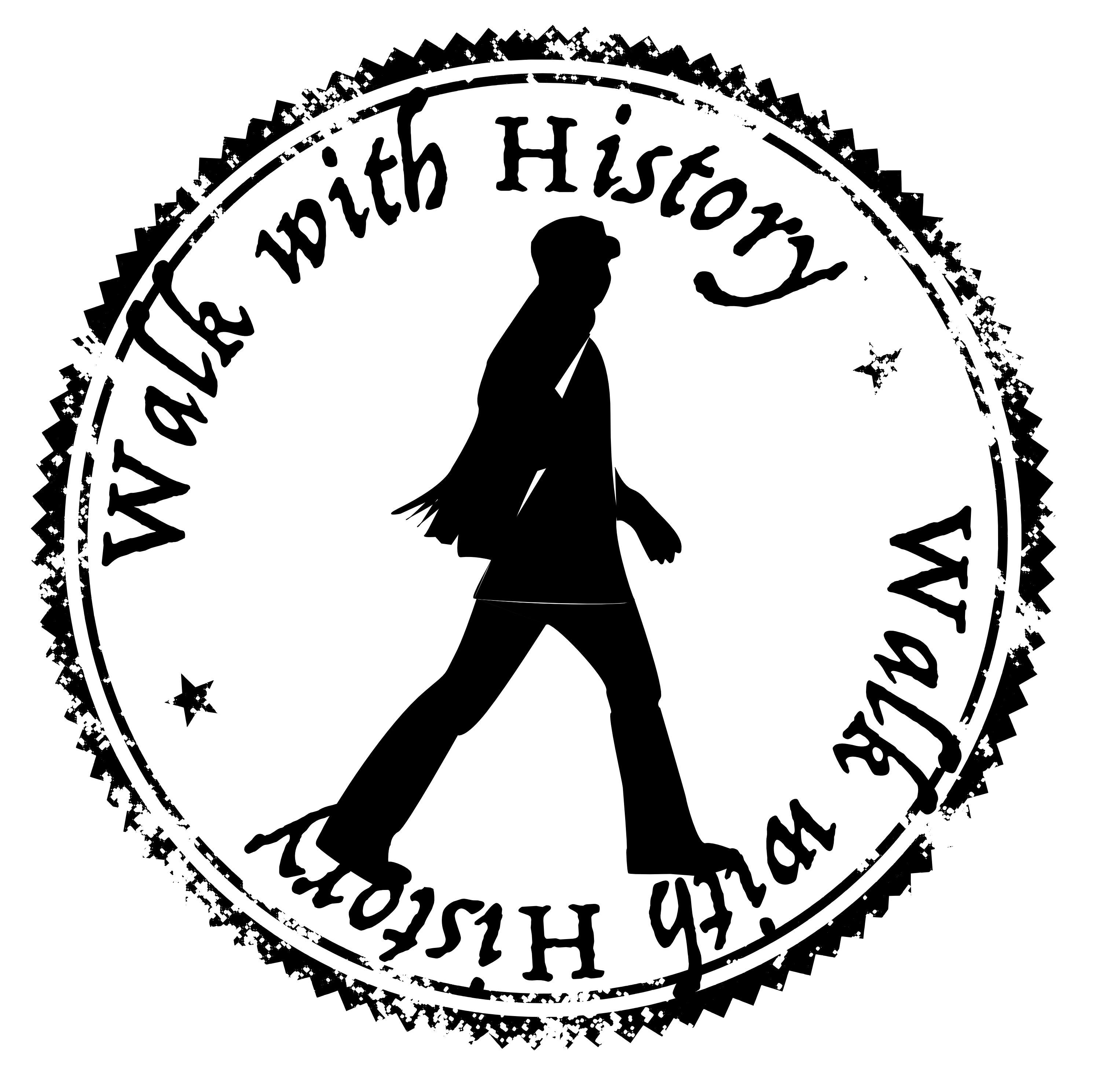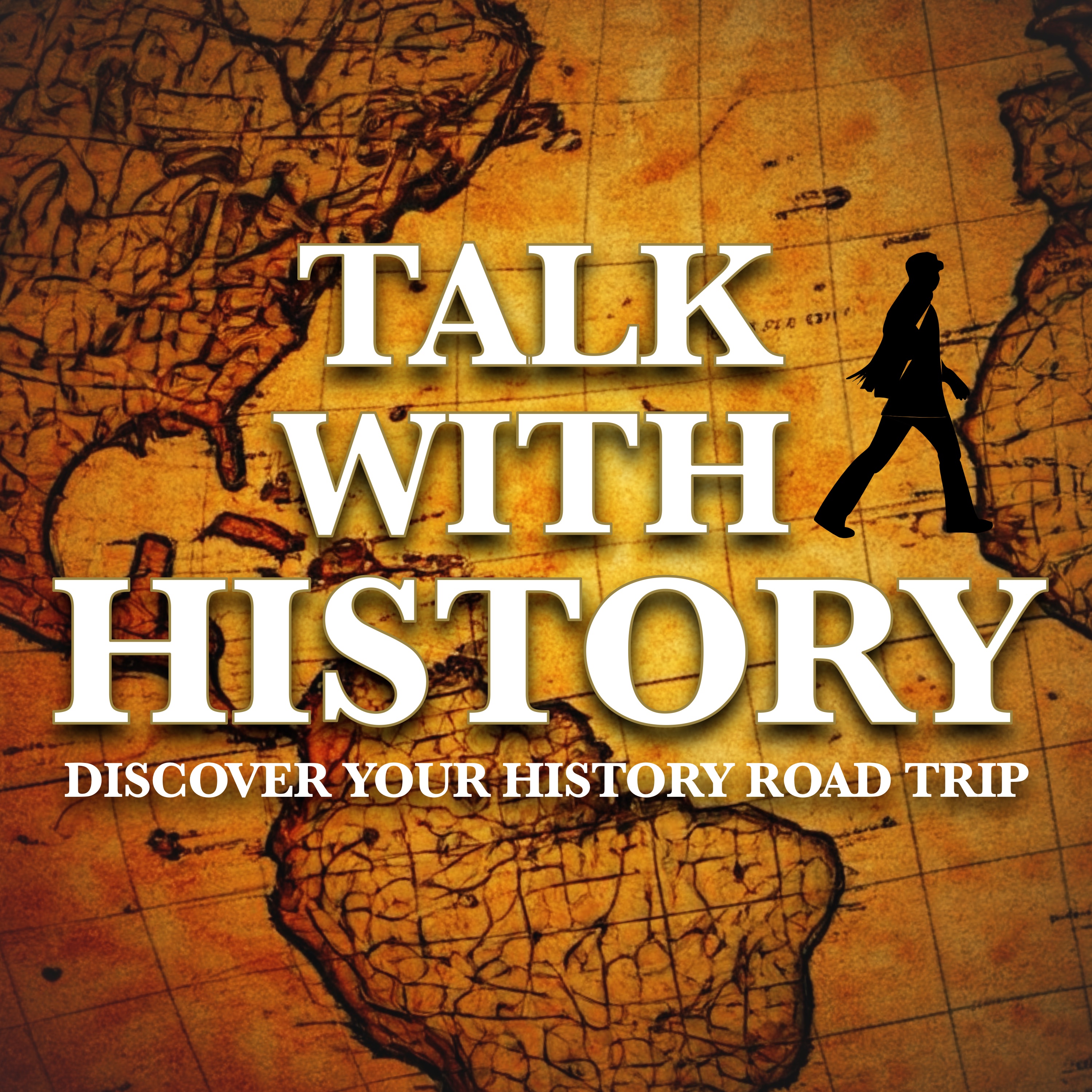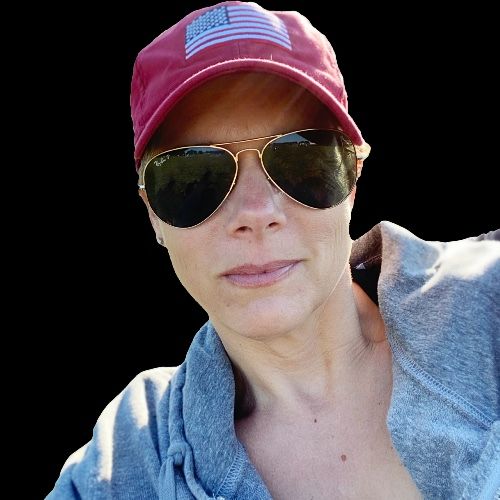Davy Crockett: The Legend Who Roamed the Wild Frontier
➡️ Help history. 2 minutes for 7 questions 🫡
Join us on a journey through the life of Davy Crockett, a man whose adventures in the wild and later political life have made him a quintessential American folk hero.
In this episode, we recount our visit to his last cabin in Rutherford, Tennessee; a place steeped in stories of his legendary exploits. From his early days of hunting in the woods and earning a reputation for killing 105 bears in one season to his time as a congressman standing against President Jackson’s controversial policies, Crockett's life is a tapestry of bravery, charisma, and tragedy.
We take a closer look at how his storytelling ability contributed to his fame and how he became a symbol of American independence and courage, especially after his dramatic death at the Alamo. As we sit on the front porch of the cabin, we reflect on what it means to visit a place that once cradled the spirit of such a remarkable man. We also examine the myth versus reality of his life and death, considering the various accounts of how he met his end during the Alamo siege.
Spoiler alert: the truth is as twisty as a coonskin cap!
📍 Google Maps to Davy Crockett cabin
🎥 Video version of this podcast
💬 Comment on this episode here
-------------------------------------------------------
⬇️ Help us keep the show going and explore history with us! ⬇️
🧳 Plus...get free travel resources in your inbox.
-------------------------------------------------------
📧 contact: talkwithhistory@gmail.com
Talk with History is a global Top 40 History podcast on Feedspot!
Transcript
Davy Crockett made his name as a frontiersman and expert marksman in Tennessee, where his legendary hunting skills and charismatic personality earned him the nickname King of the Wild Frontier.
r General Andrew Jackson from:His knowledge of the wilderness and his leadership skills making him an invaluable asset. Now this popularity led to a successful political career in Tennessee, where he served three terms in the US House of Representatives.
And Crockett became known for his colorful personality and his eventual opposition to President Jackson's Indian Removal act, which we'll talk some more details about. That a stance that showed his independent thinking but ultimately contributed to his political demise.
Now Crockett became a folk hero through his storytelling abilities and larger than life Persona. He embraced his public image, but eventually left Tennessee.
From the very location that Jen and I visited and the location that we're going to talk about today, welcome to Talk with History. I'm your host Scott, here with my wife and historian Jen.
Jenn:Hello.
Scott:On this podcast, we give you insights to our history Inspired World Travels, YouTube channel Journey and examine history through deeper conversations with the curious, the explorers and the history lovers out there. Now, Jen, before we get kicked off, it's been a couple weeks since we've technically recorded because we try to record in batches.
So I have a couple shout outs because we got another podcast supporter who's supporting us through the history roadtrip.com Very cool. So the History, if you don't know the history, Road Trip is our newsletter where we kind of go.
I try to go deeper into kind of our history adventures. I give some links and Google map, you know, kind of resources and stuff like that to kind of help you give you a resource.
If you ever wanted to go visit the locations that we visit and through there, if you want to support the podcast, you want to support us and what we do and all the history stuff and us sharing this, you can become a member over there and there is some occasional exclusive content. But we had Calvin Gifford, he signed up to Support us@thehistoryroadtrip.com and thank you, Calvin. He actually he comments on a lot of our videos.
I think he might even be a member, a YouTube channel member where you can get early access to our videos. So I just wanted to thank Calvin for that because he's been a huge Supporter of the show.
He found us the newsletter over@thehistoryroadtrip.com and I'll flash the. There's a link in the show notes or I'll flash it up on the screen again if you want to go over there.
We try to kind of put out some occasional newsletter stuff. We are kind of little spoiler alert.
We are working on a documentary, so we've started one and I'm going to try to put out kind of my journey in doing kind of a first documentary over there. A little bit of behind the scenes type stuff. So if you're interested in that, I'm probably going to.
I got my first little behind the scenes, just me speaking my mind after our first day of kind of testing, filming, stuff like that. So, um, check us out. But thank you, Calvin, so much for supporting the podcast. Thank you so much for supporting the show.
If you want to just leave like a one off tip for us, you can go to talkwith history.com and find that support link.
If you want some more resources, some occasional exclusive content, you can find us over@the historyroadtrip.com and you can find all the links in the show notes.
Jenn:We're very appreciative. All this goes right back into the channel.
Scott:So, Jen, us being Tennesseans now, right. I can kind of consider this like our second home state.
Originally from California, but we've lived in Tennessee once before and we're going to call Tennessee home for a little while. We went and visited basically the last place that Davy Crockett lived in Tennessee.
Jenn:Yeah, his last home. Yeah, because he really, like didn't live in Texas. Like, he went to Texas and made it to the Alamo. And they didn't think they were gonna stay there.
Now, there is a good argument that Davy Crockett was going to move to Texas. Like he had went out to fight for independence for Texas.
His idea was that they were going to win and then he was going to be getting land as part of that fight. And then he was going to move his family.
Scott:I mean, you think about it, he's a frontiersman. There's another frontier in Texas.
And so he's probably going down there to, you know, fight with people that he knew down there and try to try to stake his claim out there.
Jenn:That was the plan. But David Crockett, David Crockett, you know, he's probably one of the most famous people from Tennessee. Right. Like the whole song about him.
have to remember he's born in: rs after the Constitution, in:So he's born at that time, and he's born in Tennessee, but they quickly moved to Pennsylvania. His father has many children, and his father just keeps getting in debt and in debt. And what they did at the time is they could.
You could indenture your children out and to work off your debt. And that's what happened to David Crockett. He was indentured out.
The people who, who, you know, had them work for them were very nice to him, but he was just sick and tired of doing it.
Scott:Now, was this. Was he born in Tennessee?
Jenn:He was born in Franklin, which was the state of Franklin at the time.
Scott:So first. Which is now actual Franklin, Tennessee.
Jenn:Yeah, which is Franklin, Tennessee.
Scott:And if. And if you're not familiar with the Nashville area, so Franklin is just south of Nashville. Franklin's kind of like the bougie part of Nashville.
I mean, now, right. Like, that's where there's movie stars and country music stars. Country music stars, right. I think Justin Timberlake might have a.
Have a home out there. But that's interesting.
Jenn:Yeah. So he. That's what.
But that's where he learns to live off the land, because as an indentured servant, basically, he's fending for himself as he's working someone else's land. So that's where he learns to hunt, make his own clothing and, you know, shoot all those things, camp.
And so that's where he learns his self survival, self preservation. And he basically just walks off at 16 years old. He's like, I'm not doing this anymore for my dad. I'm good. I'm done.
Scott:So he. He started, what, when he was like 10, did it for a few years, and then he was like in 16, he was like, yeah, I know enough.
I'm going to go kill some bears and do my own thing.
Jenn: ts associated with the War of:He goes down to New Orleans and he does show people how to scout. He does show people how to hunt. He shows. He is very good at living off the land. So he grows into infamy and. And he's a Very good storyteller.
He likes to hunt bears. He likes to hunt any kind of wild animal at the time. And he's wearing the coonskin hat, he's wearing the buckskins, like, like a Native American.
he's elected to government in: Scott:So you think about it too. I mean, he's probably. He's not even 40 yet. Right. So he's been doing his frontiersman Tennessee thing for 30 plus years. 35, 36 years.
He's born in:That goes a long way at that time because not everybody's reading, not every. Not everybody's literate necessarily. Right. That's just. There was no, like, newspapers weren't all over the place just because it's early America.
Right. It's largely frontier out there. So who's going to get well known? Somebody who's good at what he does and somebody who's a great storyteller.
Jenn: d of like helping lead War of:And so all these people go back home and said, let me tell you about this guy who helped us who wore these skins, these buckskins, and he was killing bears and he told stories about domesticating bears and, and people just like what. And he would wear a coon skin hat, like he would skin a raccoon and wear the hat with the tail on the back.
's married first to Paulie in:And then he marries a widow, Elizabeth, and she has two children of her own. And then they have three children together. So Davy Crockett has six children of his own, but eight total with Elizabeth's children.
So those are the eight children who are at the Rutherford cabin.
When we go to the cabin and I talk about, it's four rooms, but the parents are downstairs on a main room because they're not climbing the stairs up and down all day. And the six, eight kids are figuring out how to be in one room upstairs.
Scott:Yeah. And. And now Rutherford, Tennessee isn't really as. It's actually closer to Memphis than it is to Nashville.
So it's kind of not quite due north, kind of northeast of where we are in Memphis. So it's a little bit further west from Nashville. So that's key. Kind of kept moving west, which again, kind of makes sense for the time.
Kind of keep going out on the frontier and that's the direction to go.
Jenn:Yeah, he was very much keep settling, keep getting more land. Yes, it would. It's considered northwest Tennessee, if you're looking at Tennessee.
But for us, it's east because we're the farthest west you can go in Memphis. So it's east and north for us. And it wasn't a. Wasn't a hard trip. It was very easy.
But there's nothing really out there unless you're going to go see the. It's the replica of Davy Crack, Davy Crockett's last home. Now they use the actual timbers from his house. And it's.
urnishing insides is from the:It may not have been original to the cabin, which is.
Scott:It's kind of wild because. So let me. Let me set the scene here. And I'll put B roll. You know, if you're watching the video, I'll put some. Some video footage it there.
And the video, of course, will be linked in the show notes if you're listening and you want to watch the video. But we find this location. It took us a little bit to find it because it's kind of off the beaten path. Right. Had to showed up.
We didn't know if it was open or not. And there's a sign on the door like, yeah, call the county courthouse.
So we call the county courthouse and some guy just drives up in his truck and opens it up for us. And then he basically just kind of lets us go in. There's a little donation box and a guest kind of signature. Signature book.
er. So there's stuff from the:You know, we went upstairs and there's the whole kind of loom thing and that they used to weave. And there's. There's all that. It's just right. Sitting right there. It's not behind protective cases. It's. It's kind of wild. And the guy just left.
Jenn:And he just left.
Scott:He just left. We didn't even realize it. He left the door open. So we Just kind of closed it behind us and. But it was. It was really cool.
Jenn: cool. And so he's there from: But it's in:And even though Crockett was an enslaver, he doesn't believe in treating people less than just based on their nationality. So what was interesting is he gets so upset that his home state has kind of turned their back on him.
oing to go. So in the fall of:And there's controversy around what happened at the end of Davy Crockett's life. And what's hard about this is there's primary sources for both. There's primary sources of people who were a part of Santa Ana's group.
And were a part of the people that they didn't kill that were at the Alamo. Some of the servants that said they found Crockett in a room. After killing 16 other men with his knife. In another man being. Had. Had him been killed.
came out with Fess Parker in:And the journal said that some people surrendered. And Davy Crockett was one of the surrenderers. And then they were all executed.
ted, and they do date back to: Scott:Oh, really?
Jenn:So what. What's hard is Santa Anna says himself that nobody surrendered. So you get Santa Anna's testimony that he said no one surrendered.
They take all the bodies of the men and pile them up and put wood on them and burn them all. And then I think it's two years later, they. Someone comes with a coffin and gets the ashes and buries the coffin in a peach orchard close by.
Now, there's a coffin at the Alamo that they claim is that coffin and has the ashes inside. But in reality, that coffin was buried, and no one knows exactly where it is.
But because of that, there's no evidence to support the surrender or the fighting till the death.
Scott:Well, I mean, let's be realistic. All the evidence we really need is the Disney movie with Fez Parker. Right. That's all the evidence. Rereleating.
That's how most of us know Davy Crockett. Right. So I pulled up, just for our podcast guests, I pulled this little gem up here. And this is the song we all know.
Davy Crockett:Born on a mountaintop in Tennessee Greenest stayed in the land of the free Raised in the woods Sosy knew every tree Killed him a bar when he was only three Davey Davy Crockett, king of the.
Scott:That is the Davy Crockett song. I mean, and that's.
I remember that as a kid, and I barely remember watching this show, but I knew the song because, you know, that was kind of like another way to kind of keep that legend going, which was Disney. And Disney did that with a lot of kind of, you know, American stories and stuff like that.
Jenn:And I tell you this, Like, I love that Fess Parker's wearing moccasins. And, like, the kind of moccasins you can buy at the store. It's so great.
Scott:Yeah.
Jenn:But this is. This is the truth of Davy Crockett is he moves into this storytelling infamy, and he does build his life up.
I killed 105 bears at this cabin in Rutherford, Tennessee. I domesticated a bear. And he sat with us at the kitchen table. I could grin a bear to death. Like, he told these stories.
play was written about him in:You see these plays in this play about this frontiersman who's now a politician and what he did for survival and how he lives in Tennessee. It was like he would walk into Congress just in the buckskins. And he did do that to live up this Persona.
And it was almost like he was, like, half animal, half man, half domesticated, half buffoon, like, and he enjoyed that. And so that story about him was really what resonated.
And so that's why he felt, I think, so betrayed when he was pushed out of Congress is he felt betrayed by his people because he had built this Persona based on Tennessee.
Scott:Yeah. And it's one of those things that we talk about this all the time with kind of legendary people, Whether it's people that are in.
In pop culture in some form or fashion. When they kind of. They die, you know, at the. At. In some peak moment. You know, for James Dean, he was just super young, but then a rising star.
You have the Marilyn Monroe you have, right? So you have all these. These people like this. Now, for Davy Crockett, he was a little bit older.
He was probably almost 50 by the time the Alamo happened, but he still was this legend. And then he died in kind of this legendary manner at this legendary battle that was kind of continued on in story in Americana.
That's really what cemented his story, right? And we talk about that all the time. So this is just a classic instance of a case like that.
Jenn:Yeah, he was 49. And the Alamo resonates with people. Remember the Alamo, right? Because this is a rally cry. Texas is going to get its independence, right?
And even though the. The Mexicans have won that battle, this is what rallies everyone to come and fight for Texas's independence. And remember, the Alamo becomes that cry.
So Davy Crockett moves into infamy. And when you think of the Alamo, he's the most famous one who died there. I mean, you can think of Bowie with the Bowie knife.
And there's other people who are there. And if you watch the movie, like, oh, okay, but Davy Crockett is the most famous person who's there. And I think his famous.
Cemented by that death, how he died fighting for America.
ght for America in the War of:And sit on his front porch on the rocking chair, knowing that he was a storyteller who probably rocked away and whittled and told these stories, it was amazing for me as a historian to be able to do that growing up on these stories of Davy Crockett.
Scott:Yeah, it was awesome. I will say. I mean, if you're interested in visiting, you kind of have to dedicate a visit to it because it's off the beaten path, right?
It's not super close to Memphis. It's probably an hour and a half from. From us. So. But if you want to. If you want to make the effort up there, it's kind of neat. It's.
I will leave some links in our show notes if you want to go to it, because there's a couple Davy Crockett things that are around Tennessee. Like there's a museum out in Nashville and stuff like that. But I will definitely leave a link to this specific site.
Jenn:Yeah, there are other. I think there's six locations to visit for Davy Crockett in Tennessee. One is a county named after him, of course, but he was in East Tennessee.
last home. And he lives here:And this is his last home before he leaves for the Alamo. So that's what's significant about this location. There's our. There definitely are other places to see. Associated with Davy Crockett.
sses away in this location in:There's a lot of Davy Crockett history in this one location. And it was definitely worth the visit. It's there for you. It's available to you. I really thought it was awesome to go see.
Scott: at the Battle of the Alamo in:Drawn by the promise of a new frontier and the struggle for Texas independence. Crockett's arrival at the Alamo transformed him from a frontier politician into an immortal American hero.
In February of 36, Crockett joined fewer than 200 defenders at the Alamo mission in San Antonio. Despite facing overwhelming odds against Mexican General Santa Ana's army of thousands, Crockett and his fellow defenders held their ground.
According to eyewitness accounts, Crockett's spirit never wavered during the 13 day siege. As he kept morale high with his humor and music, often playing the fiddle for the troops. On March 6, the Alamo fell to Mexican forces.
While accounts of Crockett's final moments vary, the most enduring image is of him fighting to the very end, using his rifle, Betsy as a club when ammunition ran out. His death at the Alamo transformed Crockett from a popular frontier figure.
Into an American legend, symbolizing courage, independence, and unwavering dedication to principles. Today, Davy Crockett's legacy lives on in countless ways.
The:While places like the Alamo continue to draw millions of visitors each year who come to honor his memory schools, parks and forests bear his name, and his famous coonskin cap remains one of the most recognizable symbols of the American frontier spirit. Thank you. This has been a Walk with History production. Talk With History is created and hosted by me, Scott Benny.
Episode researched by Jennifer Benny. Check out the show notes for links and references mentioned in this episode.
Talk with History is supported by our fans@thehistoryroadtrip.com and Returnal. Thanks go out to those providing funding to help keep us going.
Thank you to Doug McLiverty, Larry Myers, Patrick Bennie, Gale Cooper, Christy Khotz, and Calvin Gifford. Make sure you hit that follow button in the podcast player and we'll talk to you next time.





